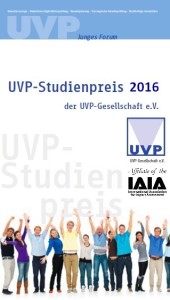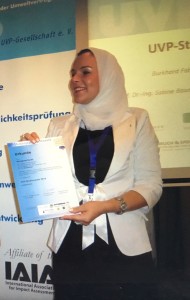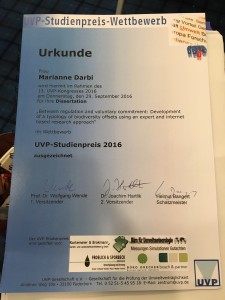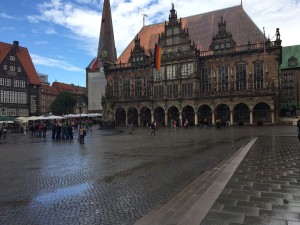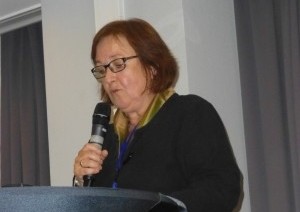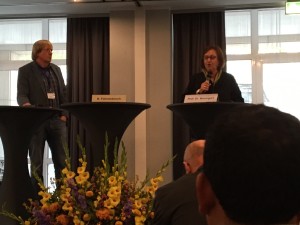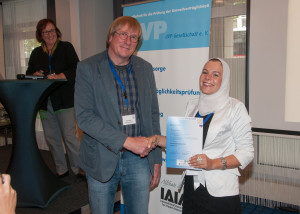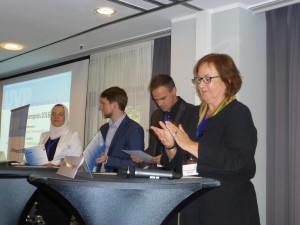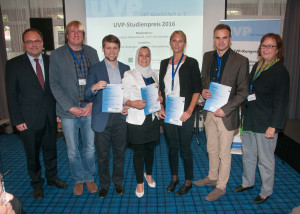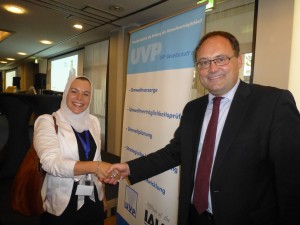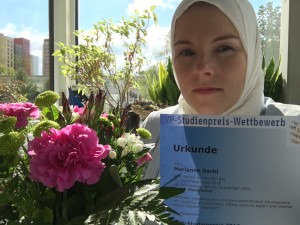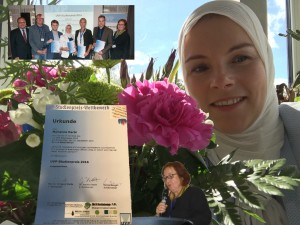 I had blogged about it earlier how happy I am to receive the EIA Study Award of the German Society for Environmental Impact Assessment.
I had blogged about it earlier how happy I am to receive the EIA Study Award of the German Society for Environmental Impact Assessment.
The big day had finally come Thursday, 30 November and I was enjoying both an interesting EIA congress with lots of inspiring talks from practitioners, policymakers, scientists and administration. But of course, my personal highlight was the official award ceremony. Thanks to the jury for choosing my work for this prize and especially thanks to Prof. Sabine Baumgart for a fantastic laudation (sometimes I couldn’t believe she was speaking about me and my work ;o)). And again, heartful thanks to all of you for your support and contribution to this work and the warm words and congratulations that I have received so far.
After uploading the German official press release, I now want to share the English version of the press release with you. For whom this may be a bit too formal, find below also some photographs :o)
Official press release on the EIA study award
Marianne Darbi, research assistant at the Leibniz Institute of Ecological Urban and Regional Development (IOER), has received the EIA Study Award 2016 for her dissertation on the mitigation of environmental impacts. With a prize of up to € 5,000, the award goes to outstanding research in the field of environmental impact assessment (EIA). It was awarded by the German Society for Environmental Impact Assessment (UVP-Gesellschaft) end of September. Marianne Darbi had convinced the independent jury with a global typology of measures to compensate for biodiversity loss.
In her research, Marianne Darbi has dealt with the so-called biodiversity offsets. This term covers measures designed to compensate for the adverse effects of impacts on the environment, such as construction or infrastructure projects. According to this approach, the loss of biodiversity in one place is offset by measures to increase biodiversity elsewhere. In addition to legally regulated measures, a large number of voluntary compensation approaches are currently being developed. “This multitude of new measures is not only a positive one, as a controversy has developed that sometimes even blocks the protection of biological diversity,” explains Marianne Darbi. “With my work, I wanted to provide a systematization that makes a reliable assessment of different compensation measures possible.”
This approach has been successful, illustrated by various examples of legally regulated and voluntary compensation measures. Marianne Darbi describes more than 70 case studies in her dissertation, locates them geographically, introduces the peculiarities. She has developed a typology of biodiversity offsets based on an intensive literature research and through contact with a worldwide network of experts and practitioners. On the one hand, the diversity and complexity of biodiversity offsets worldwide is demonstrated. On the other hand, the typology makes the different approaches more comparable, success factors and obstacles can be derived, the advantages and disadvantages of the different types of biodiversity offsets become clear.
The jury praised the thematic depth and breadth of the dissertation as well as the clearly structured approach, the reflected presentation of the results as well as the good visualization which contributed to the understanding.
The EIA Study Award is granted every two years for outstanding theses in the field of precautionary environmental protection and planning. The prize is awarded by the German Society for Environmental Impact Assessment (UVP-Gesellschaft) in various categories and is endowed with a total of up to EUR 5,000. The UVP Society has been promoting environmental protection as a specialist association for over 25 years and all planning and management instruments required for this purpose.
Contact at the Leibniz Institute of Ecological Urban and Regional Development:
Dr. Marianne Darbi, phone: (0351) 46 79–223, e-mail: M.Darbi [im] ioer.de
Further information:
In the course of her dissertation (entitled “Between regulation and voluntary commitment — Development of a typology of biodiversity offsets using an internet and expert based approach”), Marianne Darbi has created the Biodiversity Offsets Blog, a worldwide platform for information and exchange on biodiversity offsets and the mitigation hierarchy.

